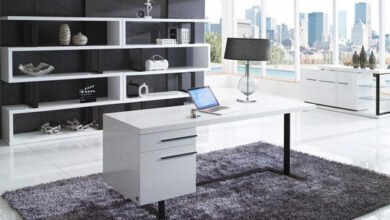
When procuring an air conditioner for your home, you consider the feeling of comfortable and clean air for your loved ones. And to accomplish this desire, you look after the most cost-effective, energy-efficient, and eco-friendly air conditioners. Nowadays, inverter technology in ACs is becoming favourable in the market, and owners prefer it for their homes. Their energy efficiency, quieter operation, long-lasting, and many other features make them an excellent choice among other air conditioners. But how are they different from split AC or conventional non-inverter air conditioners? Let’s have a look at this.
Comparison Based on Their Category
1. Compressor Unit
There is a difference in the compressor motor of inverter ACs and split ACs. A compressor compresses the refrigerant gas that cools the air and regulates the temperature in the room. Split inverter ACs work on automatically compressing units. It stabilises the temperature when there is a room cooling or heating requirement. As a result, the compressor of inverter ACs works harder for the desired output. In contrast, there is no such way to control non-inverter AC. Hence, it cools the room by working at full capacity.
2. Functionality and Efficiency
Because of its feature to stabilise according to the room temperature, inverter ACs are more preferred for saving electricity. In contrast, there is no such feature in non-inverter ACs. In contrast to inverter ACs, non-inverter air conditioners cause unnecessary and excessive power usage.
Besides saving you electricity bills, inverter ACs are eco-friendly as they save 30-40% energy compared to non-inverter ACs.
3. Performance
Inverter ACs are more flexible and versatile because of their better compressor system. These features make them better in performance than non-inverter ACs. Generally, 1.5 ton split AC inverter, and non-inverter ACs do a fine job cooling a room, so your decision should consider other factors.
4. Costs
As inverter ACs are more advanced in technology than non-inverter ACs, their cost is also higher. It is also counted as the basic drawback of inverter ACs. Their installation and service expenses are also higher than non-inverter ACs.
However, if you desire to use your AC long-term, the cost of inverter ACs can be considered as an investment.
Pros & Cons of Inverter Air Conditioners
● They have a more energy-efficient and environment-friendly compressor system than non-inverter ACs.
● Their compressor can work at different speeds and is self-adjustable according to the room temperature.
● They use less power and are quieter compared to non-inverter ACs. They do not make loud start or stop sounds.
● However, they are fairly expensive because of their flexibility, functionality, and durability. Hence, the cost of inverter ACs is considered an investment in front of their advantages.
● Their life span is much longer compared to the other types of ACs.
● The only drawback of these ACs is they are more expensive than non-inverter ACs. Their advanced technology, installation charges, and expensive replacement parts increase their cost.
Pros & Cons of Non-inverter Air Conditioners
● Their cheaper cost makes them affordable compared to inverter ACs. As a result, they are accessible to many people with limited incomes.
● They have a short lifetime as compared to inverter ACs. Their non-adjustable compressor affects their system, and it reduces their life span.
● They create a lot of noise when turned on or off. It sometimes affects the sleep or work of its users.
● Because of the poor compressor compared to inverter ACs, the power expenses in the case of non-inverter ACs are higher.
Conclusion
The main idea of purchasing an AC is to give you and your loved ones a comfortable life in this heated environment. Although looking for better technology is a good choice, do not forget to notice other factors before making a final decision.
While the inverter AC is the better choice and a form of investment, non-inverter ACs are much more accessible because of their budget-friendly nature.




